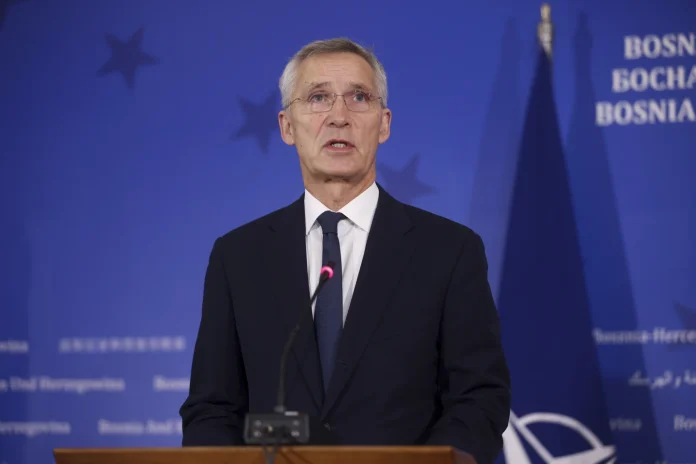NATO Secretary General Jens Stoltenberg completed a tour of the Western Balkans this week, demonstrating support and commitment to the region, Deutsche Welle reported.
This region is strategically important to NATO, but there are reasons for concern. We see secessionist threats in Bosnia and Herzegovina, a fragile security situation in Kosovo and stalled normalisation between Belgrade and Pristina.
Since the end of the Cold War in the 1990s, NATO has played an important security role in the region, intervening in Bosnia and Kosovo when Yugoslavia broke up into separate states. Today, three of the six Western Balkan states are NATO members (Albania, Montenegro and North Macedonia), while three are not (Serbia, Kosovo and Bosnia and Herzegovina).
In Kosovo, which used to be a province of Serbia during Yugoslav times but seceded and declared independence in 2008 after the 1990s war, hostilities between ethnic Serbs and the majority ethnic Albanians are intensifying. The US and 22 of the 27 EU states recognise its statehood, while Serbia and Russia consider it a breakaway province.
Kosovo Serbs are often highly distrustful of national authorities and maintain close relations with Serbia. In September, four people were killed in a shootout between ethnic Serbs, barricaded in a monastery, and Kosovo authorities.
Consequently, NATO deployed about 1,000 additional troops to Kosovo and reinforced patrols in the predominantly Serbian north. According to the Reuters news agency, the total number of KFOR troops has surpassed 4,500.
Speaking in the capital Pristina on Monday, Stoltenberg declared that NATO would “do what is necessary to maintain a safe and secure environment and freedom of movement for all people in Kosovo.”
We are now reviewing whether we should have a more permanent increase to ensure that this doesn’t spiral out of control and creates a new violent conflict in Kosovo or the wider region.
In the meantime, Republika Srpska, formed after the breakup of Yugoslavia, is threatening secession. It covers about half of Bosnia and Herzegovina and is home to about 1.2 million people, mostly ethnic Serbs.
For Bojana Zoric of the European Union Institute for Security Studies, Stoltenberg’s trip was mainly aimed at sending “a clear message to the region and other actors present and involved, including Russia, that NATO remains strongly committed to ensuring security.”
NATO’s increased presence in Kosovo should encourage all sides to exercise restraint and therefore support the resumption of an effective normalisation dialogue between Pristina and Belgrade, she stated.
